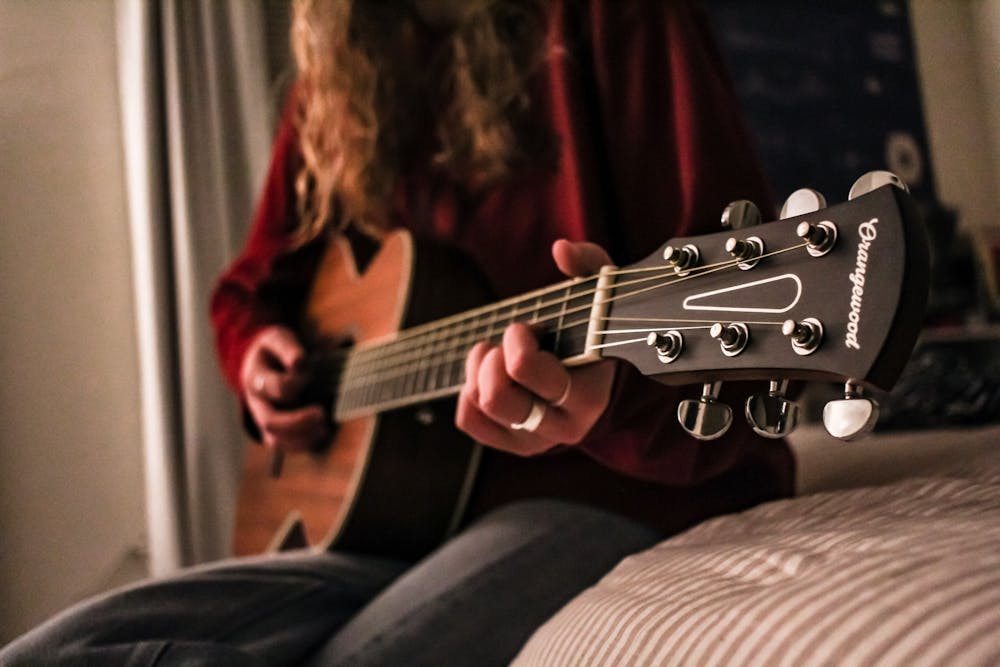19th century writer and politician, Edward Bulwer Lytton said, “Music, once admitted to the soul, becomes a sort of spirit, and never dies.” Lytton raises a significant question about how music can affect people, and more specifically, Auburn students.
“…Being in a small country town in Alabama, I don’t know it made me feel less crazy,” said Lee Dewberry, senior in design. Dewberry is a co-host on her own podcast through WEGL FM and an avid lover of music.
As Dewberry listened to more music, she felt a passion forming.
“I write poetry and stuff now, and it helped me a lot with realizing that was a love of mine," Dewberry said.
For some, music is a necessity. Music provides a comforting feeling or a way to feel what someone needs to feel. It is something people can’t live without.
Harvard Medical School reported that music can help patients restore lost speech, reduce cancer treatment side effects, aid pain relief and improve the lives of dementia patients.
“I think that it’s almost like an emotional regulator for humans. I just think that we need a connection to our emotions,” said freshman in design, Rae Nawrocki. Nawrocki is a freshman WEGL FM member and an alternative/metal music fan.
Dewberry said, “It’s a representation of inner workings and inner-feelings that you can’t necessarily represent without something like music.”
For these students, music is a way for them to process feelings that may be hard to describe. Music can be a vessel of understanding and can make people feel less alone.
“I was in my own little world…I didn’t really hang out with people, I just kind of talked to people at school. That was when I started getting into more alternative music because of the emotional aspect to it,” Nawrocki said.
When asked what her first memory of music affecting her was, Dewberry recounted her first experience with music at a Walk The Moon concert in 7th grade and said it was still one of her happiest memories.
While some students listen to music casually, there are others whose extracurriculars and majors are centered around music. Auburn University’s band has 380 members, many of whom are music majors.
They dedicate their time and energy into producing music for the football games Auburn students know and love. Within their practices and classes, they are being affected by the directors and professors of the Auburn music department.
“If they are in a position where they have to pick music for a certain event, they know what all of the types of things out there are, and more importantly, they learn to have a personal aesthetic…” said the director of percussion for the Auburn Marching band, Doug Rosener.
Students are not only learning physical skills, but they are also learning to think like a musician.
“They are actually forming musical opinions based on a lot of different things as opposed to just one,” Rosener said.
Students aren’t just being affected by music, but music is helping them affect others.
“They’re inquisitive and they challenge you and they sometimes show you different viewpoints and ways to think about things,” Rosener said.
Not only are students challenging their teachers, but they are reminding teachers why they enjoy teaching.
“When I can see them proud of themselves for their accomplishments, that’s really great, and that’s the best part of being a teacher,” Nicole Agostino said. Agostino is a professor in the Auburn University music department. Her students learn practical piano skills that they will use when they become educators themselves.
Whether someone is studying music or using it to escape, they can be affected. Music is working alongside Auburn students as they study, creating waves.
Do you like this story? The Plainsman doesn't accept money from tuition or student fees, and we don't charge a subscription fee. But you can donate to support The Plainsman.
Culture Writer





